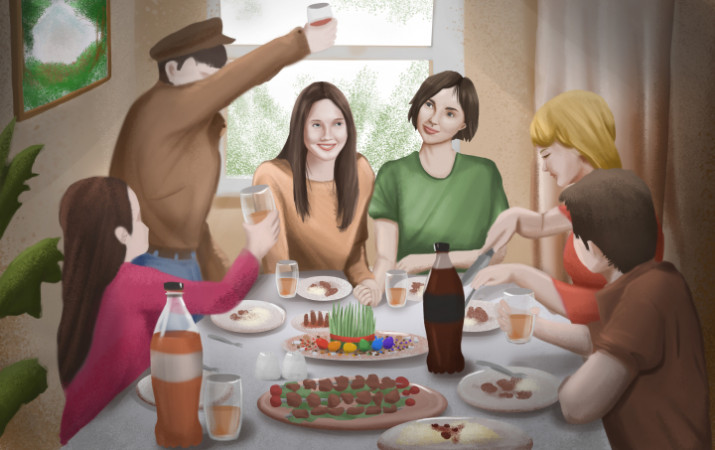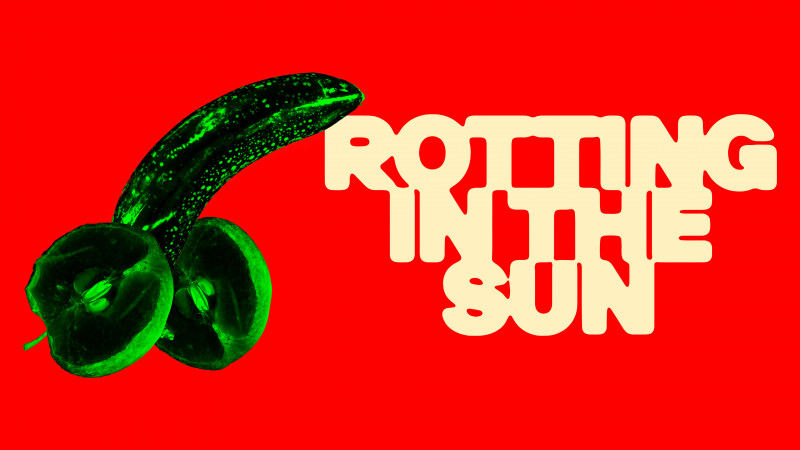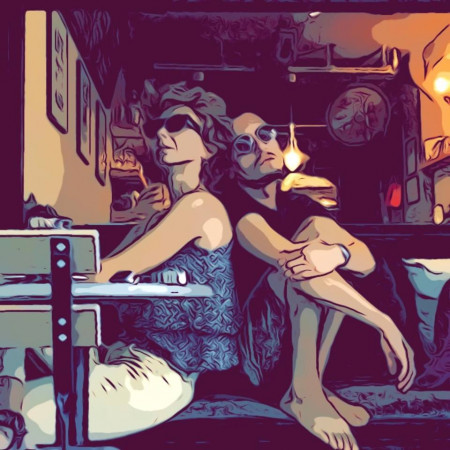Nafas LGBTI Azerbaijan Alliance: Advocacy campaign
Nafas LGBTI Azerbaijan Alliance presented the program of the advocacy campaign
31/Jul/21
5823
Nafas LGBTI Azerbaijan Alliance presented the program of the advocacy campaign
Nafas LGBTI Azerbaijan Alliance plans advocacy campaign for 2021. Focusing on LGBTI + and women's * rights this year, LGBTI+ rights organisation has developed an advocacy program on the 2017 "LGBTI+ hunt" and the expected decision of the European Court of Human Rights. We present the program and what Nafas LGBTI Azerbaijan Alliance said to Minority Azerbaijan as it is.
Nafas LGBTI Azerbaijan Alliance has been advocating for the protection of LGBTI+ rights and social inclusion in Azerbaijan since 2012. Nafas is an LGBTI+ human rights organisation that works with and for the community and sustains its activities in the country.
During our activities, we have carried out projects in various fields, prepared reports on LGBTI+ rights violations, conducted awareness-raising trainings, produced podcasts, and advocated for the rights of LGBTI+ in the country at the international level.
For this year, Nafas plans an advocacy campaign around the 2017 targeting of the LGBT+ community in Azerbaijan, the largest hunt of its kind carried out by officials in recent years. During the campaign, we will also discuss less institutional hate crimes that took place in May and June of 2021. We would like to note that Azerbaijan has been included in the reports of ILGA-Europe for the last five years as the worst country in Europe in terms of the legal, social and political status of LGBTI+s. Though homosexuality was decriminalised as one of the preconditions for membership in the Council of Europe in 2000, and sex between two men has not been a crime in the country since, no additional legislation or political action has been taken in the ensuing years. On the contrary, every year, the situation of LGBTI+s in the country worsens, especially in 2020 after the pandemic and the war with Armenia.
In May and June alone, Nafas recorded about 10 attacks on the LGBTI+ community. The news portal Minority Azerbaijan covered the attacks and international human rights organisations ILGA-Europe, the Norwegian Helsinki Committee, Civil Rights Defenders (CRD) and RFSL issued a statement calling on the government to conduct a fair investigation into those attacks.
The greatest and gravest example of blatant, systematic, and aggressive violations of LGBTI+ rights in Azerbaijan were observed during the targeted raids against the community in September 2017 and an echoing incident on 1 April 2019. Similar crackdowns against the community, in particular against those who earn their living as sex-workers, were regularly happening prior to these grand raids too, though more minor in scope and less systematised. The raid of 2017 was the most brutal and harshest on all parameters, including massive occurrences of the following persecutable actions: massive torture and other inhuman treatments, detentions and arrests, forced medical examinations, usage of electro-shockers, forced head shavings, insult, foul language, and gross breaches of privacy. The interrogations were carried out by threats and blackmailing, and they collected data on the incomes, money and information on other community members in the same way. ‘Hunting’ was done via police entrapment (false clients), arbitrary police pursuits, arbitrary decisions, blatant violations of defence rights, and arrests on ungrounded bogus charges and false protocols. The investigations were held in a reckless, blind, formulaic, and careless manner. They were followed by so-called ‘kangaroo’ courts carried out in a conveyor-belt style which obediently confirmed the results of those “investigations'' with “copy-and-paste” decisions. that were head-to-toe fully identical with the decisions of investigation and courts, and therewith merely played a role of the confirming notary for the investigation.
Using discriminatory language, a high level spokesperson of the Ministry of Internal Affairs called the victims mentally unstable. Dozens of the targeted LGBTI+s were forcibly taken to different police stations after being collected from the streets, apartments, and places they had been invited via “entrapment-calls”. Afterwards, they were driven to the Venereology Dispensary (STI clinic) for involuntary medical examinations. They were intensively interrogated to obtain information on their personal lives, ties, incomes, friends, and data on the community. Their telephones and personal belongings were broken into and searched. Information was collected about other individuals forcedly by threats. They were subjected to physical and psychological abuse, intimidated, and beaten. The police bullied and humiliated them repeatedly with numerous questions and insults targeting their lifestyle, sexual orientation and gender identity. They were undressed and tortured. They were taken to court and subjected to administrative fines and arrests. Dozens of LGBTI+s hid, and some of them left the country because of the level of violence. All aspects of this mass raid targeting LGBTI+, dubbed “hunting” for its characteristics and the level of its violence, had been described in detail in reports by national and international organisations and the state was seriously condemned for it.
A and 24 others are members of the LGBTI+ community, and they allege they are victims of arbitrary police raids carried out by police in Baku in-mid September 2017. The applicants argue that they were subjected to torture and ill-treatment by police officers and due to their sexual orientation and gender identity, custodial staff and the responsible domestic authorities failed to conduct an investigation. The cases were filed at the European Court of Human Rights on the 28th of March 2018 as one group. The applicants rely on inter alia Article 3 (on the prohibition of inhuman or degrading treatment), in conjunction with Article 14 (on the prohibition of discrimination) of the Convention. Due to the absence of an investigation at the domestic level, allegations of ill-treatment are predominantly based on the applicants' statements.
Considering the above mentioned cases, Nafas LGBTI Azerbaijan Alliance will assess the considerable role of the applicants’ identities as sexual or gender minorities in meeting the threshold under Article 3, read in conjunction with Article 14. For this, Nafas LGBTI+ Azerbaijan Alliance has developed a three-part action plan. We will set up the relevant facts of the case in Section I, Section II will elaborate on the role of discriminatory elements and the vulnerability of the victims in assessing torture and ill-treatment in the international jurisprudence. Then, in Section III we will examine the Court’s jurisprudence on substantial and procedural aspects of Article 3, read in conjunction with Article 14. After elaborating on the discussed principles and standards in the context of the present case, discussions on how the applicants’ identity has played a role in the behavior of police officers, custodial staff, and judges at the domestic level will be organised together with local and international lawyers and human rights defenders.
Our first discussion in regard with “A” and 24 others against Azerbaijan will take place in August on the Zoom platform. Javid Nabiyev, a human rights activist from the Nefes LGBTI Azerbaijan Alliance, and Jala Bayramova, a lawyer, and Samad Rahimli, one of the applicants' lawyers, will take part in the discussion. The discussion will be open to everyone. More information will be shared soon.
Powered by Froala Editor



